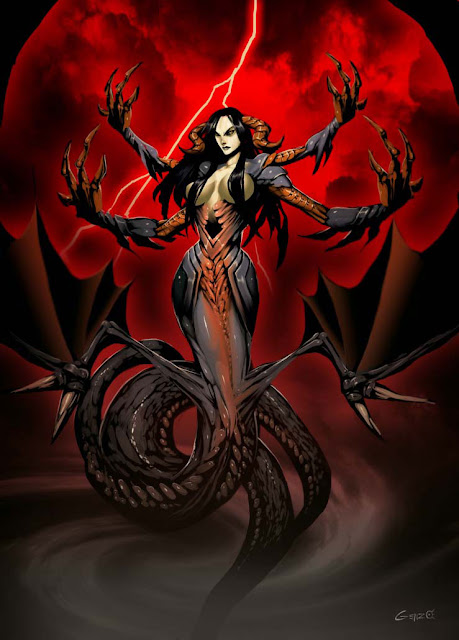ECHIDNE bore a dreadful brood to Typhon: namely, Cerberus, a three-headed Hound of Hell; the Hydra, a many-beaded water-serpent living at Lerna; the Chimaera, a fire-breathing goat with lion’s and serpent’s body; and Orthrus, the two-headed hound of Geryo: who lay with his own mother and begot on her the Sphinx and the Nemean Lion.
1. Cerberus, associated by the Dorians with dog-headed Egyptian god Anubis who conducted souls to the Underworld, seems to have originally been the Death-goddess Hecate or Hecabe; she was portrayed as a bitch because dogs eat corpse flesh and howl at the moon.
2. The Chimaera was, apparently, a calendar-symbol of the tripartite year, of which the seasonal emblems were lion, goat, and serpent.
3. Orthrus, who fathered the Chimaera, the Sphinx, the Hydra, and the Nemean Lion on Echidne was Sirius, the Dog-star, which inaugurated the Athenian New Year. He had two heads, like Janus, because the reformed year in Athens had two seasons, not three: Orthrus’s son, the Lion, emblemizing the first half, and his daughter, the Serpent, emblemizing the second. When the Goat-emblem disappeared, the Chimaera gave place to Sphinx, with her winged-lion’s body and serpent’s tail. Since the reform New Year began when the Sun was in Leo and the Dog Days had begun, Orthrus looked in two directions-forward to the New backward to the Old-like the Calendar-goddess Cardea, whom the Romans named Postvorta and Antevorta on that account. Orthrus was called ‘early’ presumably because he introduced the New Year.

Comments
Post a Comment